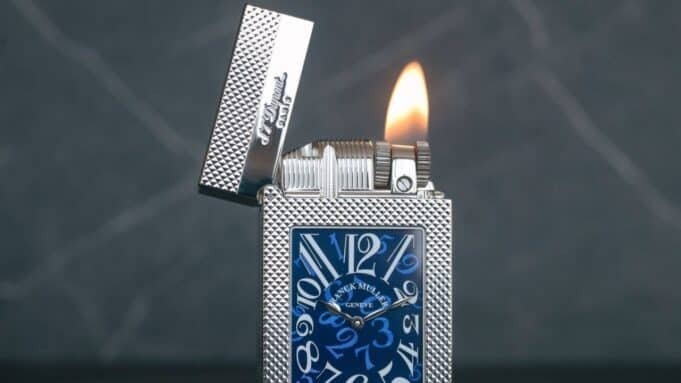Can you bring a lighter on a plane? Air travelers often wonder if it’s safe—or even legal—to pack a lighter in their luggage. Since lighters are associated with fire risk, they fall under strict airline safety regulations. With varying rules depending on the lighter type and whether it’s packed in a carry-on or checked bag, confusion is common.
The Transportation Security Administration (TSA) in the U.S. has specific guidelines about lighters, and international regulations may differ. Understanding these rules is crucial for avoiding confiscation or delays at the airport. In this guide, we’ll explain what kinds of lighters are permitted, how to pack them correctly, and the key differences between carry-on and checked baggage rules.
TSA Guidelines: Can You Bring a Lighter on a Plane?
Can you bring a lighter on a plane? According to TSA guidelines, the answer is yes, but with restrictions. One disposable lighter per passenger is allowed in carry-on baggage. However, the type of lighter you carry matters, and not all are treated the same.
Lighters are generally not permitted in checked baggage unless they are empty or secured in a DOT-approved case. Torch lighters, commonly used for cigars, are completely banned from both carry-on and checked luggage due to their high-temperature flames. TSA agents may inspect and screen your belongings if a lighter is found during X-ray scanning, and any prohibited items will be confiscated.
To ensure smooth travel, always double-check the latest TSA guidelines before your flight. Staying informed can help you avoid unnecessary delays and ensure your lighter makes the trip with you.
Related: Can You Bring Cigarettes on a Plane?
What Types of Lighters Are Permitted?

Not all lighters are treated equally by airport security. Different types come with different rules, largely based on their construction and fuel type.
Disposable Lighters (e.g., Bic)
Most disposable lighters, like Bic brand models, are allowed in carry-on luggage. Passengers may bring one lighter on board, as long as it contains fuel and is for personal use. These lighters are considered low risk and don’t usually trigger additional security checks.
Zippo and Butane Lighters
Zippo lighters and other fuel-based models are permitted in carry-on bags if they are fueled and intended for personal use. However, if you’re traveling with butane canisters or spare fuel, those are prohibited. TSA may require the lighter to be in a proper protective case if it is packed in checked luggage, though in most cases, they recommend placing these in carry-ons only.
Torch Lighters or Jet Flame Lighters
Torch lighters, including jet flame and cigar lighters, are strictly prohibited. These high-temperature lighters can pose serious fire risks, making them unsuitable for both carry-on and checked baggage. TSA categorizes these under hazardous materials, and they will be confiscated if found during screening.
Electronic or Arc Lighters
Electronic lighters—including plasma, arc, and USB-rechargeable models—are generally not permitted in carry-on or checked bags due to their lithium batteries and ignition source. TSA bans most of these devices, and even if some airlines allow them under special conditions, it’s best to avoid traveling with them unless explicitly permitted.
Can You Pack a Lighter in Your Checked Baggage?
In most cases, packing a lighter in your checked baggage is not allowed, especially if it contains fuel. The Federal Aviation Administration (FAA) prohibits fuelled lighters in checked bags due to fire hazards in the cargo hold. This rule is enforced to prevent potential combustion caused by pressure or temperature changes during flight.
However, there are a few exceptions. You may pack up to two unfueled lighters in a DOT-approved travel case designed to contain fuel vapors. These safety-approved containers meet FAA standards and help reduce fire risk. Still, most travelers are advised to keep lighters in their carry-on if allowed, rather than risk having them confiscated from checked luggage.
Related Read: Can You Bring Spray Sunscreen on a Plane?
International Travel Rules for Lighters
Lighter regulations can vary significantly depending on the country you’re flying to or from. For example, the UK and many EU countries allow one lighter in carry-on, similar to U.S. rules, but strictly ban them in checked baggage. Canada typically follows TSA-style guidelines, while Australia enforces tighter restrictions, often limiting the type or requiring a declaration at security.
Each airline and country may have its own set of rules, so always check with both your airline and the destination country’s security authority before traveling. Additionally, international customs officers may confiscate items that are otherwise TSA-compliant, especially if they’re considered hazardous under local laws. Ignoring these differences can result in fines, delays, or confiscation at the checkpoint.
How to Safely Pack a Lighter for Air Travel
When traveling with an approved lighter, proper packing is key to ensuring both safety and compliance. If you’re placing it in your carry-on, make sure the lighter is easily accessible during screening. Avoid burying it deep inside luggage, as TSA agents may need to inspect it manually.
Use a protective case or pouch to prevent accidental ignition and to keep it from pressing against other items. For fueled lighters, it’s best to use safety covers that block the ignition mechanism. While TSA doesn’t typically require labeling, it’s helpful to declare unusual lighters—like Zippo or electronic models—to agents during screening.
Taking these precautions will help you pass through airport security with less hassle while complying with airline safety regulations.
Read More: Can You Bring Hiking Poles on a Plane
Can You Use a Lighter During a Flight?
No, you cannot use a lighter during a flight. Lighting anything onboard an aircraft is strictly prohibited due to serious fire and safety risks. All commercial airplanes are equipped with sensitive smoke detectors, especially in the lavatories. Even the smallest flame or spark could trigger these alarms.
Tampering with, disabling, or trying to bypass smoke detectors or other in-flight safety systems is a federal offense in many countries. Penalties for using a lighter mid-flight may include fines, flight bans, or even arrest upon landing. Flight crews are trained to respond quickly to any safety violations, and passengers must comply with all in-flight safety instructions at all times.
Alternatives to Carrying a Lighter on a Plane
If you don’t absolutely need to bring a lighter, there are safer and more convenient alternatives for travelers:
- Purchase a lighter at your destination. Most convenience stores and gas stations sell disposable lighters, often at low cost.
- Use matches: The TSA allows one book of strike-on-box matches in carry-ons. However, strike-anywhere matches are banned in both carry-on and checked luggage.
- Try disposable fire starters: These non-flammable alternatives are ideal for camping or hiking and pose no threat during air travel. Be sure to check their material composition to ensure they comply with TSA and airline policies.
Read Also: Can You Bring Deodorant on a Plane?
FAQs About Can You Bring a Lighter on a Plane
Can I bring multiple lighters?
No, TSA regulations allow only one lighter per person in carry-on luggage. Additional lighters are not permitted and may be confiscated during security screening. Checked bags typically do not allow any lighters unless packed in a special container.
What if I forget a lighter in my bag?
If TSA finds a lighter in your checked baggage, especially one with fuel, it will likely be removed and discarded. In most cases, you won’t face a penalty, but the item will be lost. It’s important to double-check your bags before packing.
Will TSA confiscate my lighter?
Yes, TSA will confiscate any lighter that doesn’t meet their guidelines, such as torch lighters, arc lighters, or extra lighters beyond the allowed limit. Always follow TSA rules to avoid delays and loss of personal items.
Are matches safer to bring than lighters?
In terms of air travel regulations, yes. TSA permits one book of safety (strike-on-box) matches in carry-on luggage, which is often seen as a safer alternative. Strike-anywhere matches, however, are banned in all luggage types due to ignition risks.
Conclusion
Flying with a lighter is possible, but only if you follow specific rules. TSA allows one disposable or Zippo-style lighter in your carry-on, while torch and electronic lighters are generally banned. Packing a lighter in checked baggage is restricted unless it meets strict FAA conditions, including being stored in approved safety containers.
Because rules can differ by airline and country, it’s always smart to check official TSA guidelines and your airline’s policy before heading to the airport. By understanding what’s allowed and packing responsibly, you can avoid surprises, delays, or confiscations.
Plan ahead, pack smart, and prioritize safety—your smooth journey starts with compliance.















